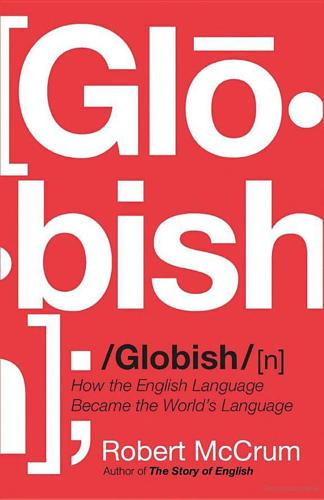
Globish: How the English Language Became the World's Language
by
Robert McCrum
Published 24 May 2010
., p. 524. 223 his history might ‘play some small part’: Churchill, A History of the English-Speaking Peoples vol. 1, (London, 1956), p. xvii. 223 ‘at the height of the Cold War’: Tony Judt, Postwar: A History of Europe Since 1945 (London, 2007), p. 223. 224 the preferred choice of Austrian secondary students: ibid., p. 224. 225 By the late 1970s: ibid., p. 482. Chapter 13: ‘The World At Your Fingertips’ 226 ‘the process whereby American girls turn into American women’: Christopher Hampton, Savages (London, 1974), scene 16, p. 75. 226 In 1959 Alistair Cooke complained: Alistair Cooke, America Observed (New York, 1988), p. 120. 227 Many legislators were alarmed: Jean-Benoît Nadeau and Julie Barlow, The Story of French (Toronto, 2007), p. 409. 228 ‘Les angleglottes’, declared the petitioners: Tony Judt, Postwar: A History of Europe Since 1945 (London, 2007), p. 761. 228 ‘a miserable time in Brussels’: author interview with MEP Charles Tannock. 228 ‘British interpreters are now so rare in Brussels’: The Times, 15 February 2009. 229 a complex adolescent mixture: Judt, Postwar, p. 758. 230 farcical interludes, like the Parsley Crisis: Fareed Zakaria, The Post-American World (London, 2008), p. 215. 231 ‘Our souls and our blood are sacrifices’: ibid., p. 216. 232 The Berlin Wall began to crumble: Judt, Postwar, p. 614. 232 ‘If I celebrate the fall of the Wall’: quoted in Thomas L.
…
By the last decades of the twentieth century capitalism seemed to be turning everything American, especially in the UK, from movies and fashion to rock ‘n’ roll and musicals. From the eighteenth century there had always been anxieties about America’s ‘corruption’ of Britain’s cultural life, usually focused on language, neologisms like ‘belittle’ and ‘hospitalize’. In 1959 Alistair Cooke complained that ‘the English vocabulary seems to have succumbed to Americanisms since the war at an unprecedented rate’. In the aftermath of the Vietnam War such anxiety was changing into panic and anger. It was not sufficient that mandarin intellectuals in ivory towers could purr soothingly about Britain being Greece to America’s Rome; across the board, the Americanisation of England, from Friends to McDonald’s, seemed to threaten a way of life.
…
Baugh and Thomas Cable, A History of the English Language (London, 1959), pp. 356-8. 106 ‘American population will produce’: ibid. 106 ‘it would be more convenient’: ibid. 107 The words are Noah Webster’s: see Baugh and Cable, History, pp. 350-51. 107 ‘The master gave the signal’: Robert McCrum, William Cran and Robert MacNeil, The Story of English (London, 1986), p. 257. 108 a ceaseless quest for originality: Ralph Waldo Emerson, ‘The American Scholar’, 31 August 1837, quoted in William Safire (ed.), Lend Me Your Ears: Great Speeches in American History (New York, 2004), pp. 591-4. 108 one Massachusetts father: quoted in Alistair Cooke, America (London, 1973), p. 156. 110 ‘We really have everything in common with America’: a paradox he later put into a story: The Canterville Ghost (London, 1887). Chapter 6: ‘Common Hopes and Common Dreams’ 112 ‘It is an absorbing thing to watch’: Harriet Martineau, Society in America (New York, 1837), vol. 1, p. 156. 112 ‘These people think so loftily’: Nathaniel Hawthorne, Our Old Home (Boston, 1907), pp. xi-xii. 112 an early word-of-mouth Anglo-American publishing sensation: see Fanny Trollope, Domestic Manners of the Americans Pamela Neville-Sington, ed.
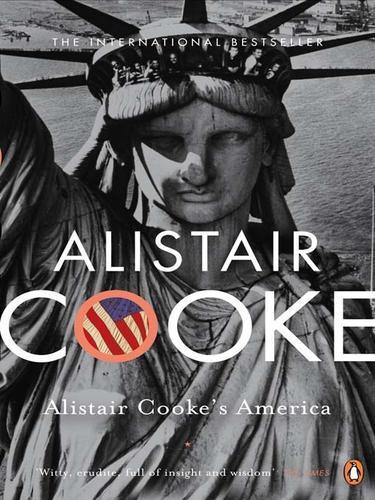
Alistair Cooke's America
by
Alistair Cooke
Published 1 Oct 2008
PENGUIN BOOKS ALISTAIR COOKE’S AMERICA Alistair Cooke enjoyed an extraordinary life in print, radio and television. Born in Manchester in 1908 and educated at the universities of Cambridge, Yale and Harvard, he was the Guardian’s Senior Correspondent in New York for twenty-five years and the host of groundbreaking cultural programmes on American television and of the BBC series America. He was best known both at home and abroad for his weekly BBC broadcast Letter from America, which reported on fifty-eight years of US life, was heard over five continents and totalled 2,869 broadcasts before his retirement in February 2004, far and away the longest-running radio series in broadcasting history.
…
He was best known both at home and abroad for his weekly BBC broadcast Letter from America, which reported on fifty-eight years of US life, was heard over five continents and totalled 2,869 broadcasts before his retirement in February 2004, far and away the longest-running radio series in broadcasting history. Alistair Cooke’s America PENGUIN BOOKS PENGUIN BOOKS Published by the Penguin Group Penguin Books Ltd, 80 Strand, London WC2R 0RL, England Penguin Group (USA) Inc., 375 Hudson Street, New York, New York 10014, USA Penguin Group (Canada), 90 Eglinton Avenue East, Suite 700, Toronto, Ontario, Canada M4P 2Y3 (a division of Pearson Penguin Canada Inc.) Penguin Ireland, 25 St Stephen’s Green, Dublin 2, Ireland (a division of Penguin Books Ltd) Penguin Group (Australia), 250 Camberwell Road, Camberwell, Victoria 3124, Australia (a division of Pearson Australia Group Pty Ltd) Penguin Books India Pvt Ltd, 11 Community Centre, Panchsheel Park, New Delhi – 110017, India Penguin Group (NZ), 67 Apollo Drive, Rosedale, North Shore 0632, New Zealand (a division of Pearson New Zealand Ltd) Penguin Books (South Africa) (Pty) Ltd, 24 Sturdee Avenue, Rosebank, Johannesburg 2196, South Africa Penguin Books Ltd, Registered Offices: 80 Strand, London WC2R 0RL, England www.penguin.com First published in the United Kingdom by Weidenfeld and Nicolson 2002 Published in Penguin Books 2008 1 Copyright © Alistair Cooke, 1973, 2002 All rights reserved The moral right of the author has been asserted Except in the United States of America, this book is sold subject to the condition that it shall not, by way of trade or otherwise, be lent, re-sold, hired out, or otherwise circulated without the publisher’s prior consent in any form of binding or cover other than that in which it is published and without a similar condition including this condition being imposed on the subsequent purchaser 978-0-14-190922-6 Contents List of Illustrations To the Reader (Old & New) Prologue: A Passage to America 1 The New-Found Land 2 A Home Away from Home 3 Making a Revolution 4 Inventing a Nation 5 Gone West 6 A Firebell in the Night 7 Domesticating a Wilderness 8 Money on the Land 9 The Huddled Masses 10 The Promise Fulfilled – The Promise Broken 11 The Arsenal Epilogue: The More Abundant Life Acknowledgments Index FOR: JANE STEPHEN HEARST MICHAEL GILL and in memory of HUW WHELDON List of Illustrations 1.
…
Penguin Ireland, 25 St Stephen’s Green, Dublin 2, Ireland (a division of Penguin Books Ltd) Penguin Group (Australia), 250 Camberwell Road, Camberwell, Victoria 3124, Australia (a division of Pearson Australia Group Pty Ltd) Penguin Books India Pvt Ltd, 11 Community Centre, Panchsheel Park, New Delhi – 110017, India Penguin Group (NZ), 67 Apollo Drive, Rosedale, North Shore 0632, New Zealand (a division of Pearson New Zealand Ltd) Penguin Books (South Africa) (Pty) Ltd, 24 Sturdee Avenue, Rosebank, Johannesburg 2196, South Africa Penguin Books Ltd, Registered Offices: 80 Strand, London WC2R 0RL, England www.penguin.com First published in the United Kingdom by Weidenfeld and Nicolson 2002 Published in Penguin Books 2008 1 Copyright © Alistair Cooke, 1973, 2002 All rights reserved The moral right of the author has been asserted Except in the United States of America, this book is sold subject to the condition that it shall not, by way of trade or otherwise, be lent, re-sold, hired out, or otherwise circulated without the publisher’s prior consent in any form of binding or cover other than that in which it is published and without a similar condition including this condition being imposed on the subsequent purchaser 978-0-14-190922-6 Contents List of Illustrations To the Reader (Old & New) Prologue: A Passage to America 1 The New-Found Land 2 A Home Away from Home 3 Making a Revolution 4 Inventing a Nation 5 Gone West 6 A Firebell in the Night 7 Domesticating a Wilderness 8 Money on the Land 9 The Huddled Masses 10 The Promise Fulfilled – The Promise Broken 11 The Arsenal Epilogue: The More Abundant Life Acknowledgments Index FOR: JANE STEPHEN HEARST MICHAEL GILL and in memory of HUW WHELDON List of Illustrations 1.
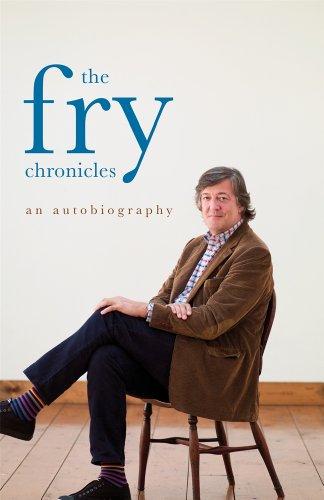
The Fry Chronicles: An Autobiography
by
Stephen Fry
Published 27 Sep 2010
We would have called you mad if you had suggested that one day Hugh would go on to win Golden Globes for playing an American in a television series and that Tilda would win an Oscar for playing an American in a feature film. Cooke The previous term Jo Wade, who was Secretary of the Mummers, had drawn my attention to the fact that the Lent term would see the fiftieth anniversary of the club, which had been founded in 1931 by a young Alistair Cooke. ‘We should have a party,’ said Jo. ‘And we should invite him.’ Alistair Cooke was known for his thirteen-part documentary and book, A Personal History of the United States, and his long-running and greatly loved radio series, Letter From America. We wrote to him care of the BBC, New York City, USA, wondering if he had any plans to be in Britain in the next few months and if so whether he might be amenable to being persuaded to be our guest of honour at a dinner for the semi-centennial celebrations of the drama club he may remember founding.
…
Each college had its own, and there were others that were university-wide. The major ones, like the Marlowe Society, the Footlights and the Amateur Dramatic Club, had long histories: the Marlowe was started by Justin Brooke and Dadie Rylands a hundred years ago; the ADC and Footlights were older still. Other were more recent – the Mummers had been founded by Alistair Cooke and Michael Redgrave in the early 1930s and clung to a more progressive and avant-garde identity. Many at Cambridge will tell you that the drama world there is filled with ambitious, pretentious, bitchy wannabes and that the atmosphere of backbiting, jealousy and greasy-pole rivalry is suffocating and unbearable.
…
He immediately grabbed my shoulder to stop me from falling, ‘Entschuldigen Sie, mein Herr!’ he said. ‘Excuse me, sir!’ For some years afterwards, whenever he came on in the cinema newsreels as his fame spread, I would say to the girl next to me. ‘Hitler once apologized to me and called me sir.’ When the evening was over Alistair Cooke shook my hand goodbye and held it firmly, saying, ‘This hand you are shaking once shook the hand of Bertrand Russell.’ ‘Wow!’ I said, duly impressed. ‘No, no,’ said Cooke. ‘It goes further than that. Bertrand Russell knew Robert Browning. Bertrand Russell’s aunt danced with Napoleon. That’s how close we all are to history.
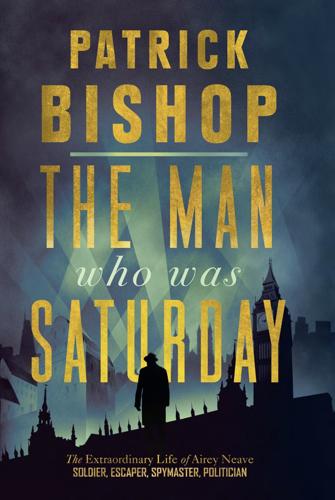
The Man Who Was Saturday
by
Patrick Bishop
Published 21 Jan 2019
Grey Gowrie, poet, intellectual and a romantic figure on the Tory front bench during Heath’s premiership who went on to ministerial office under Mrs Thatcher, thought Neave a ‘rather uptight, buttoned figure’. Diana, however, was a ‘very, very charming woman … she wasn’t at all self-centred. She was really interested in other people and what they were doing.’6 Neave needed a goodwill ambassador. He did not fit in comfortably with the party machinery, and according to Alistair Cooke, his political adviser from 1977, was ‘distrustful of many elements of [it] because it had served Heath’.7 Nor, in Ryder’s view, did he ‘have a close relationship with any other members of the Shadow Cabinet’.8 The monetarist theories which preoccupied the team around Thatcher were ‘out of his eyeline … He wouldn’t have read [Milton] Friedman or [Friedrich von] Hayek or anything like that.’
…
Neave had always been sensitive to personal criticism and careful of parliamentary etiquette. Late in life his concern for correct form seems to have faded, to be replaced by a new boldness and disregard for niceties. In a way, the new job had taken him back to where he began: doing battle with what he saw as the forces of evil. He seemed to Alistair Cooke, his political adviser, ‘an elderly man … It was hard to resist the impression that … the prominence he had secured had come too late.’22 But Neave still had fire in his belly. He had been given the chance to be a soldier again, a warrior in a dark blue suit. For him, the lines in the conflict were clearly drawn.
…
‘One of the great mysteries is why no one at the Ministry of Defence discovered for so long that this was a guerrilla war,’ he wrote at the end of 1977. As late as 1976, he had been ‘tartly informed at the highest level that it was an “ordinary infantry operation”.’33 He was soon urging the greater use of unorthodox special forces and the intensification of counter-insurgency intelligence-gathering. According to Alistair Cooke, ‘Neave wanted to employ undercover methods in defence of democracy, just as he had during the war.’ He ‘brought a vital new ingredient to the quest for victory, an insistence on the full deployment of the intelligence services with which he always had close connections. He spent much time with generals, senior policemen and spooks.’34 Early in 1976, government policy had hardened, moving in a direction that was much more to Neave’s liking.
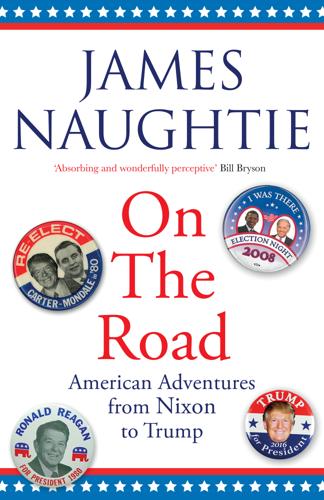
On the Road: Adventures From Nixon to Trump
by
James Naughtie
Published 1 Apr 2020
Provide your email again so we can register this ebook and send you more of what you like to read. You will continue to receive exclusive offers in your inbox. For Helen Hershkoff and Stephen Loffredo, true American friends ‘In this land of the most persistent idealism and the blandest cynicism, the race is on between its decadence and its vitality.’ ALISTAIR COOKE, America, BBC Television 1972 CONTENTS Introduction: Journeying 1. Into the Pickle Barrel 2. Floodtide 3. The Pursuit of Happiness 4. The Genial Revolution 5. The Roaring Nineties 6. Wartime 7. Two Races of a Lifetime 8. A Culture of Contempt 9. ‘Don’t You Know Me, I’m Your Native Son’ 10.
…
Unstinting and routine discrimination – in shops and restaurants, parks and movie theatres and bus stations, schools, courts and, of course, at election polling stations – was so much part of normal life that for many people it was not a subject for discussion. For an outsider like me the sharp images, startling and exciting all at once, created an indelible tableau. Nearly four decades later, I made a film about the master observer Alistair Cooke after his death, using home movies he had shot in his first explorations of America in the year or two after he arrived as a student at Yale in the early 1930s, and then drove across the country. His family had found them in boxes tucked away in the basement of his New York apartment block, long-since forgotten but containing a treasure trove.
…
On the other side, a determination that Making America Great Again was bound to involve rage, and a feeling that despite all those Sunday school lessons, that was a good thing. On both those visits, to Texas in the sunny fall and to New York on a wet spring afternoon, I was reminded of words that had lodged in my mind decades earlier. At the end of his majestic series for BBC Television in the early 1970s, America, Alistair Cooke, who as a writer and broadcaster introduced three generations of people in Britain to the mysteries of the place and its allure, looked to the camera to deliver his concluding thoughts, having explored the history of the country he loved, from the Mayflower to Vietnam, and of which he’d become a citizen.
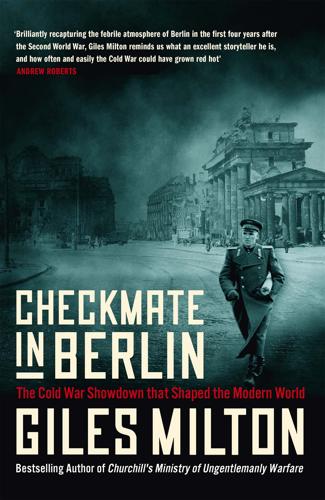
Checkmate in Berlin: The Cold War Showdown That Shaped the Modern World
by
Giles Milton
Published 26 May 2021
Epilogue 1. Among those disapproving was Sir Nicholas Henderson, assistant private secretary to Ernest Bevin. See Sir Nicholas Henderson, The Birth of NATO, Weidenfeld & Nicolson, 1982. 2. Alistair Cooke, ‘Dean Acheson: NATO’s Architect’, Guardian, 14 October 1971. 3. ‘Moscow’s Judgment on the Pact’, Guardian, 2 April 1949. 4. ‘Atlantic Pact Signed by 12 Nations’, The Times, 5 April 1949. 5. Alistair Cooke, ‘The End of An Illusion’, Manchester Guardian, 5 April 1949. 6. ‘Speeches at the Signing of the Atlantic Pact’, Manchester Guardian, 5 April 1949. 7. Cooke, ‘The End of An Illusion’, Manchester Guardian, 5 April 1949. 8.

The Words You Should Know to Sound Smart: 1200 Essential Words Every Sophisticated Person Should Be Able to Use
by
Bobbi Bly
Published 18 Mar 2009
“One of life’s intriguing paradoxes is that hierarchical social order makes cheap rents and OUTRÉ artists’ colonies possible.” – Florence King, American author overweening (OH-ver-WEE-ning), adjective Extremely presumptuous, arrogant, and overconfident. “Golf is an open exhibition of OVERWEENING ambition, courage deflated by stupidity, skill soured by a whiff of arrogance.” – Alistair Cooke, British-born American journalist and broadcaster oxidation (oks-ih-DAY-shin), noun A chemical reaction that increases the oxygen content of a compound or material. When Carlton viewed the wreck of the Titanic from the window of a submersible, he was shocked to see how OXIDATION had ravaged the ship.
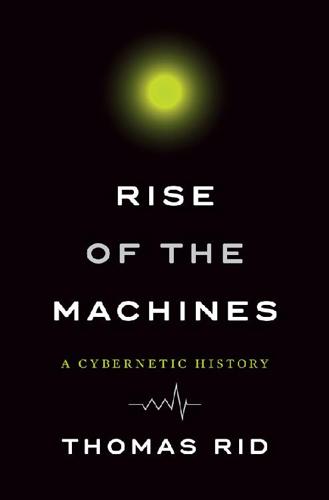
Rise of the Machines: A Cybernetic History
by
Thomas Rid
Published 27 Jun 2016
By the late 1950s, automation had acquired a “mystic” aura, as one author opened a paper on the social and economic implications of this new phenomenon, read at a conference of the British Electrical Development Association.36 A joke that was making the rounds in the early 1960s captures this mystique: A technician fiddling with a giant computer, impressed by the contraption’s growing prowess, asks the machine, “Since you know so much, tell me—is there a God?” Back comes the answer: “There is now.” Alistair Cooke recounted the story on the BBC in an episode of his famous Letters from America on the new “big brains” in January 1962.37 Automation and large machines were depicted as autonomous agents. Computers were electronic brains. Robots were portrayed as humanoids in cartoons and films. Extreme and often dark prophecies dominated the popular-press coverage of new contraptions.
…
Francis, “Self-Producing Machines,” Christian Science Monitor, June 2, 1961, 16. 33.Norbert Wiener, God and Golem, Inc. (Cambridge, MA: MIT Press, 1963), 4. 34.Ibid., 5. 35.Ibid., 10. 36.L. Landon Goodman, “Automation and Its Social and Economic Implications” (paper presented at the British Electrical Development Association annual conference, April 12, 1956), 1. 37.Alistair Cooke, “Big Brains,” Letter from America, BBC Radio 4, January 21, 1962, 21:00. 38.Norbert Wiener, “Some Moral and Technical Consequences of Automation,” Science 131, no. 3410 (May 6, 1960): 1358. 39.Astrahan and Jacobs, “History of the Design,” 349. 40.John Diebold, Automation (New York: Von Nostrand, 1952), 154. 41.John Diebold, Beyond Automation (New York: McGraw Hill, 1964), 105. 42.Ibid., 106. 43.Peter F.
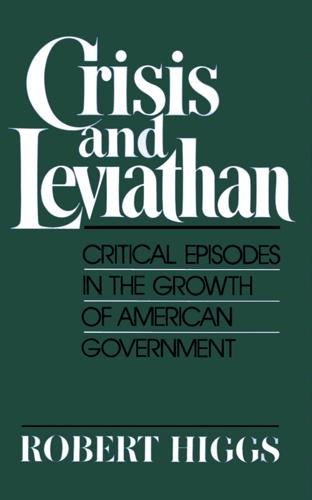
Crisis and Leviathan: Critical Episodes in the Growth of American Government
by
Robert Higgs
and
Arthur A. Ekirch, Jr.
Published 15 Jan 1987
Mencken, "one finds a clear statement of the doctrine that, in war time, the rights guaranteed by the First Amendment cease to have any substance, and may be set aside summarily by any jury that has been sufficiently inflamed by a district attorney itching for higher office." See "Mr. Justice Holmes," in The Vintage Mencken, compo Alistair Cooke (New York: Knopf, 1955), p. 189. 80. Murphy, Constitution, p. 27. Also Ferrell, Wilson and World If'ar I, pp. 200218. 81. Northern Pacific Railway Company et ale V. State of North Dakota on the Relation of Langer, Attorney General, 250 U.S. 135 (1919) at 149. Also Murphy, Constitution, p. 21.
…
After controls were imposed, uncontrolled prices continued to rise at about the same rate as before." CHAPTER EIGHT 1. Jonathan Hughes, American Economic History (Glenview, Ill.: Scott, Foresman, 1983), pp. 467-474; Gene Smiley, "Did Incomes for Most of the Population Fall from 1923 Through 1929?" Journal of Economic History 43 (March 1983): 209-216. 2. Alistair Cooke, comp., The Vintage Mencken (New York: Knopf, 1955), p. 233. Mencken also said: "Counting out Harding as a cypher only, Dr. Coolidge was preceded by one World Saver and followed by two more." 3. Excellent economic accounts include Lester V. Chandler, America's Greatest Depression, 1929-1941 (New York: Harper & Row, 1970) and Milton Friedman and Anna Jacobson Schwartz, A Monetary History of the United States, 1867-1960 (Princeton: Princeton University Press, 1963), pp. 229-419.
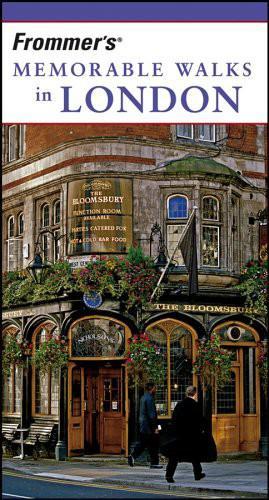
Frommer's Memorable Walks in London
by
Richard Jones
Published 2 Jan 1998
Bennett, Arnold. London Life. Ayer, 1976. Betjeman, John. Victorian & Edwardian London. David & Charles, 1969. Brewster, Dorothy. Virginia Woolf ’s London. Greenwood, 1979. Brooke, Christopher. London, 800–1216: The Shaping of a City. University of California Press, 1975. Cameron, Robert, and Alistair Cooke. Above London. Cameron, 1980. Chancellor, Edwin B. The London of Charles Dickens. Gordon Press, 1976. Davies, Andrew. The Map of London: From 1746 to the Present Day. David & Charles, 1988. Defoe, Daniel. Tour Thro’ London About the Year 1725. Ayer, 1929. Ehrlich, Blake. London on the Thames.
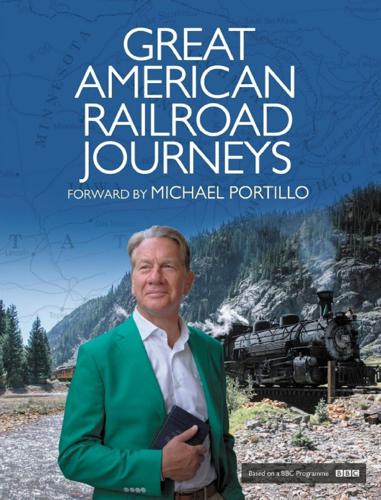
Great American Railroad Journeys
by
Michael Portillo
Published 26 Jan 2017
They provide them with clarity, unity and a sense of purpose, great strengths in a nation that is still filled with hope for its future. Michael Portillo INTRODUCTION While the Europeans attribute America’s bounty to the luck of her resources, Americans on the other hand like to ascribe it to nothing but character. It usually required a combination of both. Alistair Cooke Only partially formed, and burdened by domestic divisions, America nonetheless entered the nineteenth century feeling chipper. After declaring independence in 1776, it had won the ensuing battle against British colonialists against all odds and was now flexing its economic muscle. Exports worth $20 million in 1790 rose more than three times in value by 1811.

Reaganland: America's Right Turn 1976-1980
by
Rick Perlstein
Published 17 Aug 2020
“The pigs’ schools” Marc Liberle and Tom Seligson, eds., The High School Revolutionaries (New York: Random House, 1970), 67. Richard Nixon worked Jon Weiner, Gimme Some Truth: The John Lennon FBI Files (Berkeley: University of California Press, 2000). The day broke “The Denim Inaugural,” Newsweek, January 24, 1977; Alistair Cooke, Alistair Cooke’s America (New York: Basic Books, 2009), 231; “Carter Is Sworn In as President, Asks ‘Fresh Faith in Old Dream,’ ” WP, January 21, 1977; Theodore White, America In Search of Itself: The Making of the President, 1956–1980 (New York: Harper & Row, 1981), 194. cries of delight Carroll, It Seemed Like Nothing Happened, 266.
…
For the producers See “ ‘The China Syndrome’: More Than ‘Just a Movie’?” LAT, March 25, 197. “I saw a plume” Susan Stamberg, Every Night at Five: Susan Stamberg’s All Things Considered Book (New York: Pantheon, 1982), 91. A worker had mistakenly Ibid. and Zaretsky, Radiation Nation. “can’t tame it right” Alistair Cooke, Alistair Cooke’s America (New York: Basic Books, 2009), 240. “I am not a nuclear engineer” Zaretsky, Radiation Nation, 71. “irresponsible scare tactics” Carter, White House Diary, 310. With time to reflect Meltdown at Three Mile Island, PBS American Experience documentary, 1999. blind men “Appendix II, Transcripts from NRC Meetings,” Washington Post special report, 1979.
…
The gay magazine Michael’s Thing reported an orgy on Weehawken Street in the West Village. (“Nudity was the rule; many guys were pushed against cars and performed upon with the full consent of everyone there.”) In Times Square, entrepreneurs with flashlights sold secure passage for $2. “Considering the dubious occupations of some of those characters,” the BBC’s Alistair Cooke ventured, “I think I would have chosen to stagger alone.” Political conclusions were drawn. Herbert Gutman, a respected left-wing professor of labor history, said the boundary decent folks insisted on drawing between the supposed “vultures” and “jackals” infesting the city and their own, more upright immigrant forebears was specious, that in 1902, Yiddish-speaking Jewish housewives rioted over the price of kosher meat and were called “animals” and “beasts,” too.
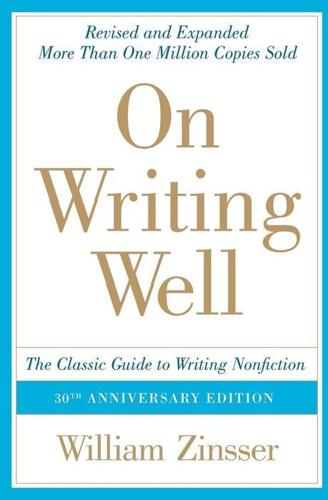
On Writing Well (30th Anniversary Edition)
by
William Zinsser
Published 1 Jan 1976
PAGE 26–27 Preface by E. B. White to A Basic Chicken Guide, by Roy E. Jones. Copyright 1944 by Roy E. Jones. Reprinted by permission of William Morrow & Co. Also appears in The Second Tree From the Corner. Harper & Bros., 1954. 27–28 “The Hills of Zion,” by H. L. Mencken. From The Vintage Mencken, gathered by Alistair Cooke. Vintage Books (paperback), 1955. 29–30 How to Survive in Your Native Land, by James Herndon. Simon & Schuster, 1971. Reprinted by permission of Simon & Schuster, a division of Gulf & Western Corporation. 55–57 The Lunacy Boom, by William Zinsser. Harper & Row, 1970. 59–60 Slouching Toward Bethlehem, by Joan Didion.
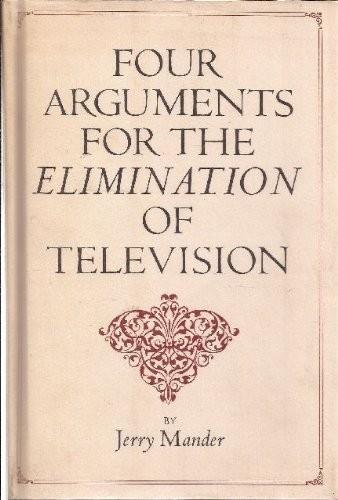
Four Arguments for the Elimination of Television
by
Jerry Mander
Published 1 Jan 1977
We all become more violent or more Fonzlike, or dis- playa TV-announcer authority. Once they are in your mind and stored, all images are equally valid. They are real whether they are toothpaste, Walter Cronkite, Kojak, President Carter, Mary Hartman, Captain Kangaroo, Marcus Welby, Pete Rose, a Ford Cougar, a cougar, the Fonz, the Bionic Man, Alistair Cooke, Rhoda, or your mother and father. Once inside your head, they all become images that you continue to carry in memory. They become equally real and equally not-real. Our thinking processes can't save us. To the degree that we are thinking as we watch television, a minute degree at most, the images pass right through anyway.
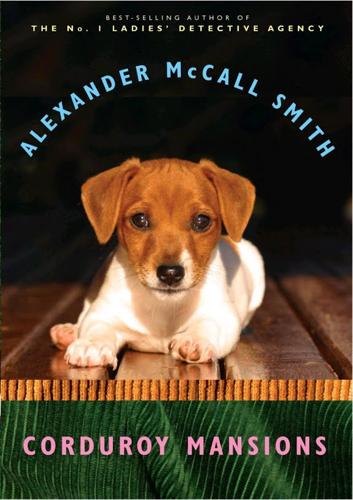
Corduroy Mansions
by
Alexander McCall Smith
Published 1 Jan 2009
I find that—” Manfred, lowering himself into a chair opposite the sofa, cut him short. “Alphabetical arrangement is not the only option,” he said. “And I’m always slightly suspicious of people whose books are arranged alphabetically. OCD issues. One isn’t a bookshop, you know. Nor a library.” William shrugged. “It must be helpful, though. I find that when—” “The late Alistair Cooke had a wonderful scheme,” Manfred continued, “whereby he placed books on the United States in such a position on his wall of shelves as to reflect their geographical situation. Books on Montana were at the top and those on Florida were down in the bottom right-hand corner.” William smiled. “I once read about how the Victorians—” “Yes,” said Manfred, “shelved books by male authors separately from those by female authors, out of a sense of propriety.

Posh Boys: How English Public Schools Ruin Britain
by
Robert Verkaik
Published 14 Apr 2018
Piers Gaveston is best known today for a particularly sordid incident allegedly featuring David Cameron and a dead pig’s head.24 For state-educated boys and girls who only encounter the privately educated at university, this behaviour can be both intimidating and unfathomable. But far more harm is caused by behaviour that is simply imperceptible to the uninitiated. * After graduating from Oxford with a first-class honours degree Cameron faced an enviable career choice – wealth or power. Within a few weeks he was interviewed by Alistair Cooke (Framlingham), then deputy director of the Conservatives’ research department. According to a number of reports, shortly before the interview took place Cooke received a phone call from Buckingham Palace. The male caller stated: ‘I understand you are to see David Cameron. I’ve tried everything I can to dissuade him from wasting his time on politics but I have failed.
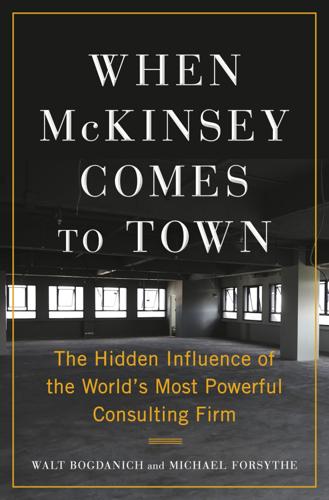
When McKinsey Comes to Town: The Hidden Influence of the World's Most Powerful Consulting Firm
by
Walt Bogdanich
and
Michael Forsythe
Published 3 Oct 2022
GO TO NOTE REFERENCE IN TEXT died in 1966: Harry Trimborn, “Wizard of Fantasy Walt Disney Dies,” Los Angeles Times, Dec. 16, 1966. GO TO NOTE REFERENCE IN TEXT industry leader for safety: David Koenig, More Mouse Tales (Irvine, Calif.: Bonaventure Press, 1999). GO TO NOTE REFERENCE IN TEXT Khrushchev, tried to visit: Alistair Cooke, “From the Archive: 21 September 1959: Mr. Khrushchev Banned from Disneyland,” Guardian, Sept. 21, 2012. GO TO NOTE REFERENCE IN TEXT became Disneyland’s top executive: Chris Woodyard, “After a Successful Stint at Disney Stores, Paul Pressler Is Becoming…: the New Mayor of Disneyland,” Los Angeles Times, Nov. 20, 1994.
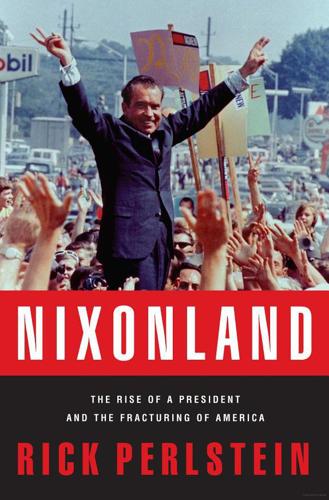
Nixonland: The Rise of a President and the Fracturing of America
by
Rick Perlstein
Published 1 Jan 2008
The AP sent a Pulitzer Prize–winning photo over the wires: one of the AAS students strides purposefully out of the building, head and rifle held high, a massive bandolier of shell cartridges wrapped around his waist and shoulder. Two more flank him with rifles. Two white men in suits look down, a black campus police officer looks away, all as if ashamed. It ran on the front pages of newspapers around the world. London’s New Statesman declared, “The U.S. is on the brink of racial revolution.” Alistair Cooke on the BBC said it reminded him of the civil strife he’d seen in the Congo and street-fighting students in the Weimar era. Beijing announced that “the U.S. ruling clique…is scared out of its wits and is plotting still more frenzied suppression of the students.” The Era of Good Feelings between press and president had not rubbed off on the students who had come back to school the previous September buzzing about Chicago.
…
On the roots of Kissinger’s rage and origins of phone taps: Ibid., 44–47. On Caulfield: Ibid., 13; Reeves, President Nixon, 67, 75–76. On Kraft bugging see Lukas, Nightmare, 64–65. Cornell uprising: Donald Alexander Downs, Cornell ’69: Liberalism and the Crisis of the University (Ithaca: Cornell University Press, 1969). New Statesman, Alistair Cooke, Beijing: Reeves, President Nixon, 73. See also “Yale Has Been Spared Campus Strife, but Some Administrators Are Nervous,” NYT, April 20, 1969, p. 74. Fortune magazine had built: Fortune, January, 1969. James J. Kilpatrick coined the phrase: Frederick G. Dutton, Changing Sources of Power: American Politics in the 1970s (New York: McGraw-Hill, 1971), 80.
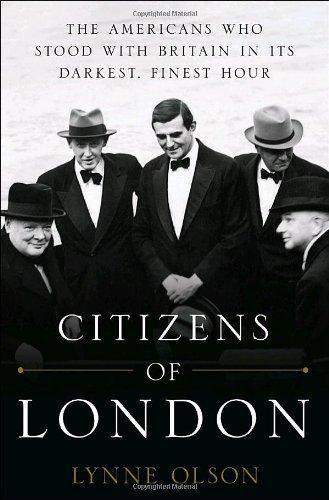
Citizens of London: The Americans Who Stood With Britain in Its Darkest, Finest Hour
by
Lynne Olson
Published 2 Feb 2010
Another was an eight-part series, called An American in England, produced by Murrow and the BBC, and broadcast by CBS. Murrow also created a new series for the BBC called Meet Uncle Sam, which one historian called “a cram course on the American experience for British listeners,” featuring, in addition to Murrow himself, such guests as Allan Nevins and Alistair Cooke, a U.S.-based BBC correspondent. The show, Murrow made clear, would contain no whitewashing of his country. “Later on in this series,” he said during its first broadcast, “you will hear all about the New Deal, our racial problems, and how we came to be a nation of which one third is ill-clothed, ill-housed and ill-fed.
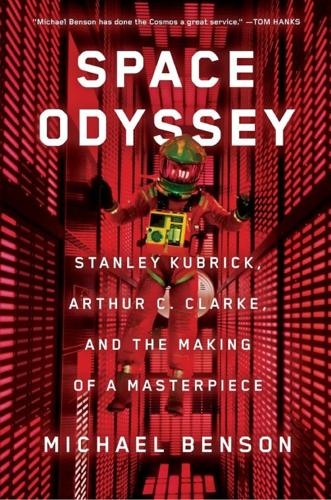
Space Odyssey: Stanley Kubrick, Arthur C. Clarke, and the Making of a Masterpiece
by
Michael Benson
Published 2 Apr 2018
As their paths diverged during the last six months of 2001’s production, Kubrick’s aesthetic differences with the novel—and psychological distance from it—appeared to be growing. • • • When he started editing in mid-October, however, Kubrick gave every indication of using Clarke’s narration, and he’d spent much of 1967 looking for a good voice. As early as February, he’d asked Caras to contact Alistair Cooke, the Guardian journalist and BBC radio commentator, to see if he’d consider auditioning. By July, Caras had left for another job, and Kubrick asked his replacement, Benn Reyes, to help him find a voice similar to Canadian actor Douglas Rain—narrator of Universe, the film already so influential in 2001’s look.
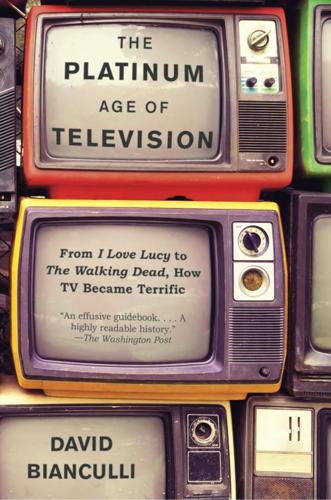
The Platinum Age of Television: From I Love Lucy to the Walking Dead, How TV Became Terrific
by
David Bianculli
Published 15 Nov 2016
In the States as well as abroad, it was that era’s equivalent of Downton Abbey: an upstairs/downstairs melodrama affording not only a peek behind the closed doors of the wealthy but a peek below, to the servants’ quarters, as well. Novels for television became big business very quickly—overseas at first, with the United States importing rather than producing. In 1971, giddy with the success of The Forsyte Saga, PBS established an umbrella anthology series to showcase these multi-hour imports and tapped Alistair Cooke, the host of the miniseries-pioneering Omnibus, to sit back in a plush armchair and introduce these long-form stories as well. The new series, called Masterpiece Theatre, hit some home runs early: 1972’s Elizabeth R starring Glenda Jackson, and another Downton-type global phenomenon, Upstairs, Downstairs, beginning in 1974.
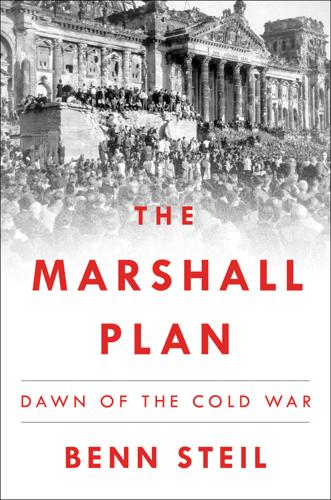
The Marshall Plan: Dawn of the Cold War
by
Benn Steil
Published 13 Feb 2018
Mckinzie, June 30, 1971, Oral History Interviews, Truman Library: 2–3; Isaacson and Thomas (1986 [2012]:370–72); McCullough (1992:369). 36 McCullough (1992:540); Donovan (1977:277). 37 Acheson (1969:217–19). 38 Yergin (1977:279); Mark F. Ethridge to Marshall, February 17, 1947, in FRUS, 1947, V: 820–21. 39 Isaacson and Thomas (1986 [2012]:389). 40 Isaacson and Thomas (1986 [2012]:233). 41 Guardian U.S. correspondent Alistair Cooke claimed the crowd numbered thirty thousand. Beisner (2006:29); Mount (April 26, 2012:27–28); Isaacson and Thomas (1986 [2012]:339). 42 Beisner (2006:29); “Summary of Mr. Acheson’s Remarks at the American Platform Guild Conference, State Department, January 3, 1946,” Assistant Secretary and Under Secretary of State File, Acheson Papers, Truman Library. 43 Pearson (December 6, 1945). 44 McCullough (1992:490). 45 Reston (August 25, 1946). 46 See, for example, Halle (1967:113–14). 47 Harkins (January 4, 1948). 48 Laura Ruttum, “Finding Aid to the George Kennan Papers: 1856–1987,” March 2008, George Kennan Papers, Manuscripts and Archives Division, Humanities and Social Sciences Library, New York Public Library: 8. http://www.nypl.org/sites/default/files/archivalcollections/pdf/kennan.pdf. 49 Thompson (2009:5–11); Kennan to Jeanette Hotchkiss, October 8, 1944, Folder 10: “Hotchkiss, Jeanette (Letters from George), 1919–1945,” Box 23, Permanent Correspondence, Correspondence, Kennan Papers, Mudd Library, Princeton University. 50 Isaacson and Thomas (1986 [2012]:229); Oser (July 27, 1986). 51 Isaacson and Thomas (1986 [2012]:373). 52 Kennan to Byrnes [“Long Telegram”], February 22, 1946, in FRUS, 1946, VI: 698–708. 53 Gaddis (2011:211); Kennan draft, “The United States and Russia,” Winter 1946, in Kennan I (1967:560–65). 54 Acheson (1969:196). 55 Beisner (2006:118); Acheson to John P.
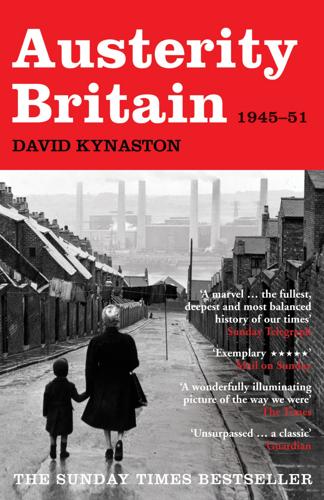
Austerity Britain: 1945-51
by
David Kynaston
Published 12 May 2008
‘I had to wait until after 6.35 for a train to Shepherds Bush, which came in packed. It stopped at White City, where many passengers alighted, presumably to attend a dog-racing meeting.’ The polling stations closed at 9.00 p.m., just as Northern Music-Hall was finishing on the Home Service and a quarter of an hour before Alistair Cooke’s American Commentary. For those interested in the outcome, that left three weeks to wait before counting began, while the votes came in from the Forces abroad. ‘If I may put down my forecast of the result,’ the Tory-supporting Glasgow pattern-maker Colin Ferguson surmised, ‘it is this: – For the Govt. 360; Labour 220; the rest 60.’